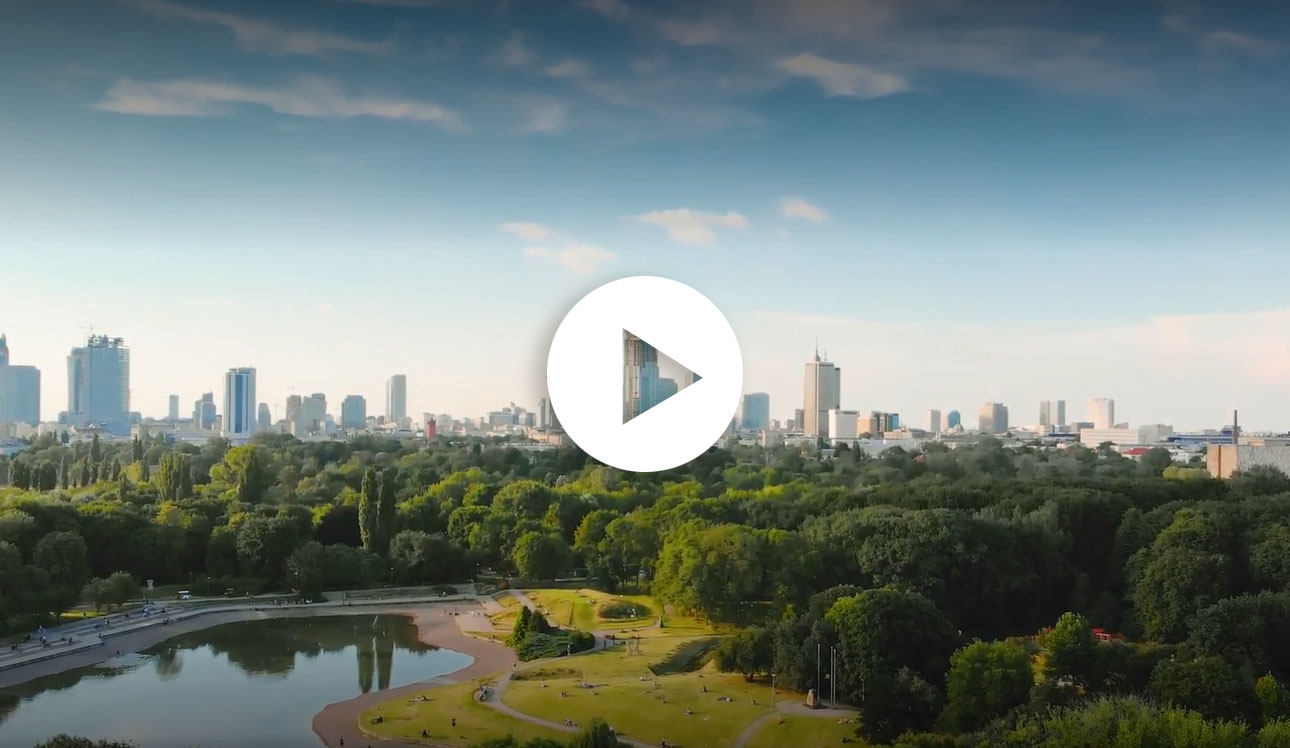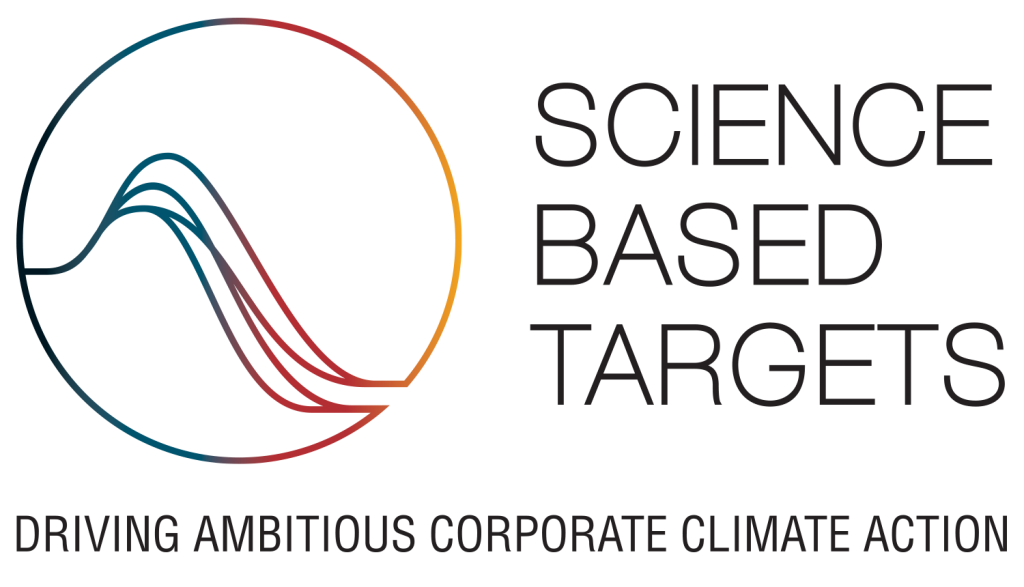INNOVATIVE TECHNOLOGIES TO ACCELERATE THE NET ZERO TRANSITION
We are exploring novel technologies that will help us decarbonize cement manufacturing and offer our customers sustainable products and solutions. Implementing novel approaches and breakthrough innovation across the built environment value chain is essential for the transition to a more sustainable, net zero world.

Carbon Capture
At TITAN we are committed to advancing carbon capture, utilization, and storage (CCUS) technologies, forging a path toward a cleaner, greener, and more resilient future for the industry.
IFESTOS is a groundbreaking carbon capture project which represents TITAN Group’s pioneering stride toward zero-carbon cement production. IFESTOS not only seeks to propel our decarbonization journey but also plays a pivotal role in expediting the sector’s green transition, while substantially contributing to promoting carbon capture technology throughout the continent. The EU Commission has granted support to IFESTOS as part of the third call for large-scale projects under the EU Innovation Fund. The project involves the construction of a cutting-edge carbon capture facility which will capture approximately 1.9 million tons of CO2 per year, at our Kamari plant in Athens, Greece. The captured CO2 will be shipped to and sequestered in a permanent geological storage site in the Mediterranean. As a result, TITAN will produce about 3 million t/year of zero-carbon cement to serve the growing needs for green construction in the metropolitan area of Athens and beyond.

In parallel, our dedication to advancing carbon capture technologies is evident in our participation in collaborative European research projects like “HERCCULES.” With a five-year horizon, HERCCULES aims to demonstrate the viability of the CCUS value chain in Southern Europe, particularly in Italy and Greece. TITAN Group’s contribution involves deploying hybrid carbon-capture technologies, capturing up to 8 tonnes of CO2 per day from cement production, part of which transforms into sustainable, low-carbon construction materials. Our relentless pursuit of innovation is evident in successful pilot carbon capture demonstrations conducted at the Kamari plant, Athens, Greece, in collaboration with EU Horizon 2020 projects RECODE and CARMOF. Notably, our contribution to RECODE earned us recognition as a Key Innovator by the European Commission’s Innovation Radar in 2022.
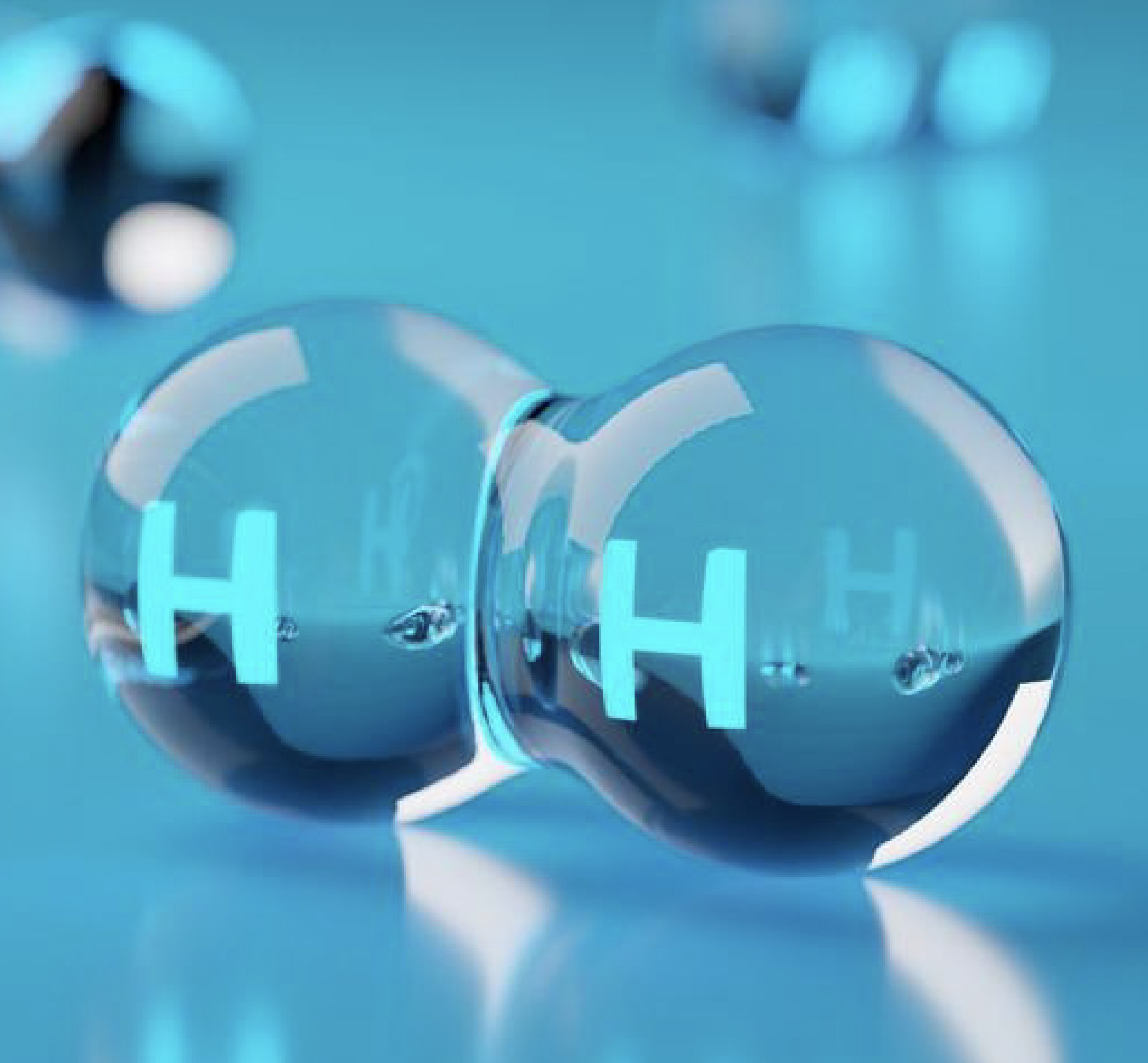
Hydrogen
We are closely following hydrogen use in cement clinker manufacturing, proceeding with industrial pilots in Greece and Bulgaria. Initial results showed that significant reductions in direct CO₂ emissions are possible with hydrogen, especially when produced through renewable means (“green hydrogen”).
Our H2CEM innovative project for the production and use of green hydrogen in cement production has been included in the second Important Project of Common European Interest (IPCEI) “Hy2Use”. H2CEM concerns the use of hydrogen as a climate-neutral fuel for cement production. With the goal to enhance the substitution of fossil fuels with green hydrogen and other sustainably sourced fuels, H2CEM includes the production of green hydrogen through electrolysis, powered by renewable energy sources, at TITAN cement plants in Greece (Kamari in Viotia, Drepano in Achaia and Efkarpia in Thessaloniki). Industrial deployment of green hydrogen in these plants will lead to reducing CO2 emissions by 160,000 tons per year (at least 8% per ton of product).
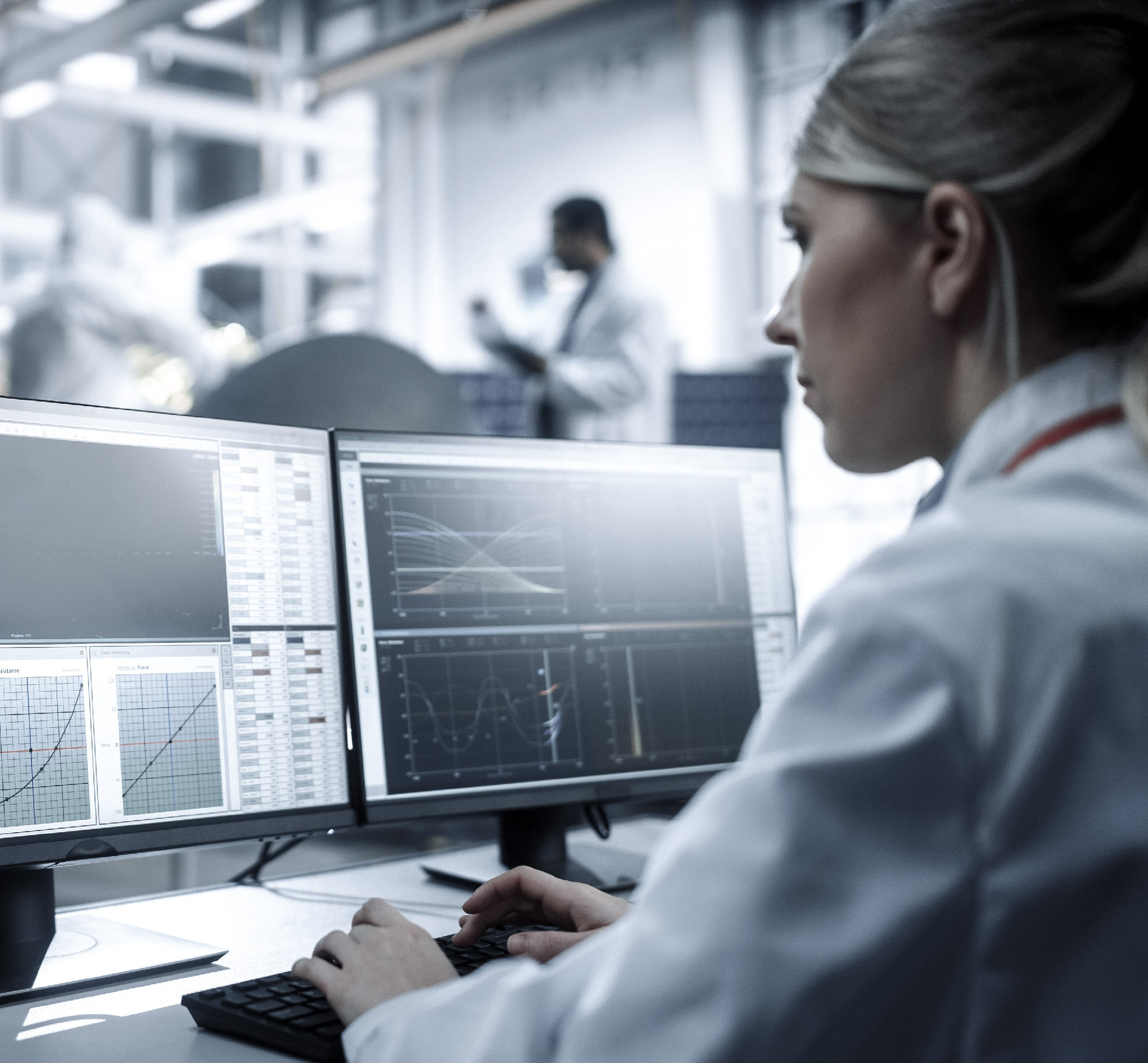
Digitalization
Our industry-first Artificial Intelligence-based Real-Time Optimizers solution (RTO) supports our journey to net zero, as it helps our cement plants reduce their energy consumption and lower their CO2 emissions, achieving overall improved environmental performance. RTO was launched in 2017 in Pennsuco cement plant, USA, and has been already rolled out across TITAN’s plants in the USA, Greece, Brazil, and Southeastern Europe. Thousands of sensors are integrated into equipment across each plant and record huge volumes of operational data that are transmitted, organized, studied, and utilized for the real-time optimization of production.
PARTNERSHIPS AND COMMITMENTS FOR THE CLIMATE
We can only achieve our goals for our planet together. That’s why we pursue and promote global collaboration to help limit global warming and drive change.
COMMUNICATING OUR PROGRESS
We are committed to open and transparent communication of our environmental impacts and mitigation actions. For our transparency in our environmental disclosures and our impactful climate action, we are recognized by the CDP as a global climate leader.
We provide information about the progress of our net zero journey through:
CDP reporting (Carbon Disclosure Project)
TCFD disclosures (Task Force on Climate-related Financial Disclosures)
Integrated Annual Report. See our Annual Reports here.
For our performance and the transparency in our disclosures, we are acknowledged by world-leading rating agencies. See our ESG ratings here.

OUR NET ZERO COMMITMENT IN ACTION
Discover how our teams around the world work every day to turn our net zero commitment into
real action.
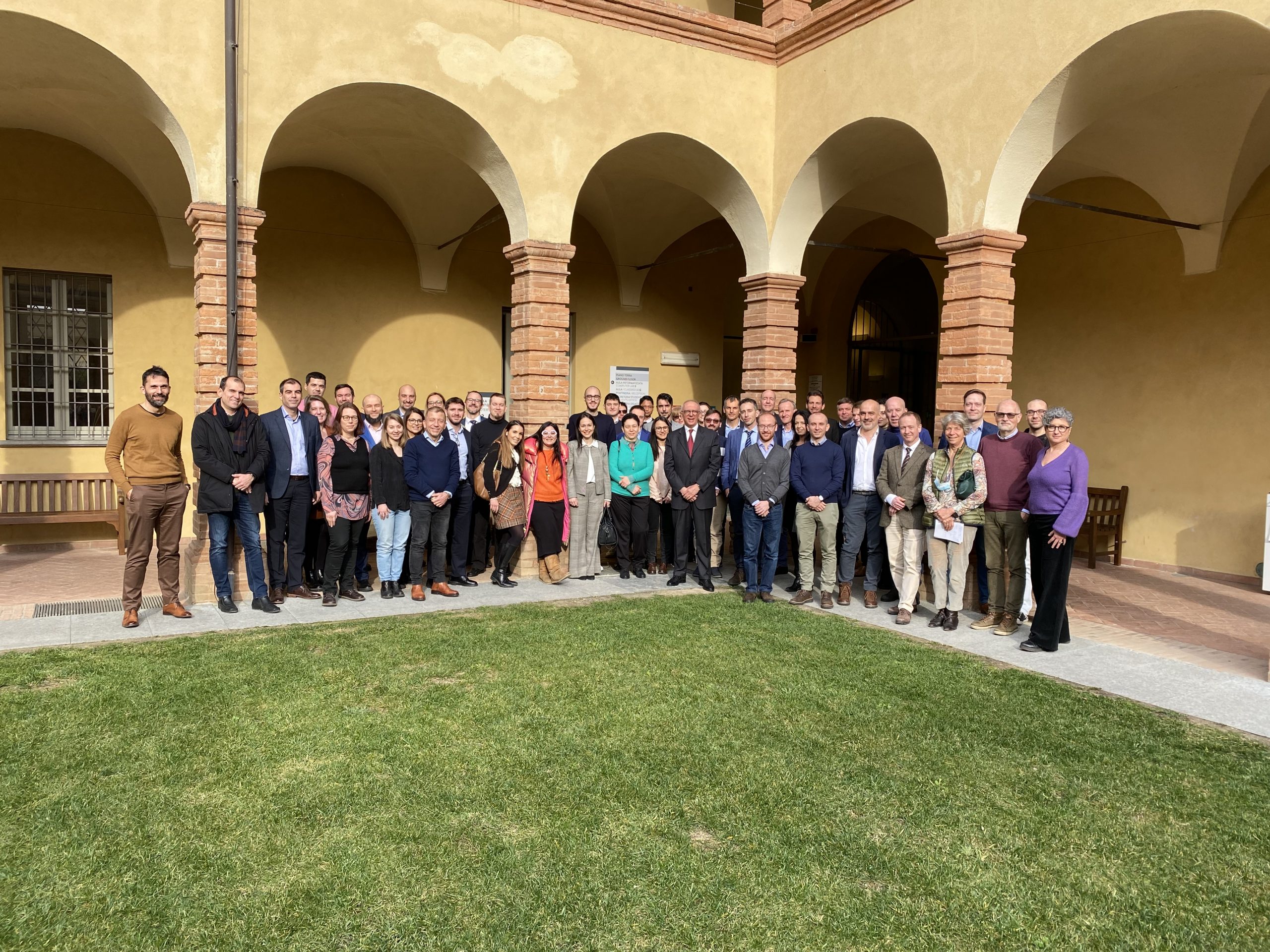
TITAN Group participates in international decarbonization CCUS research project towards Europe’s green transition
TITAN Group participates in the ambitious international CO2 Capture, Utilization and Storage (CCUS) collaborative research project “HERCCULES” that has been awarded funding in January 2023 by Horizon Europe, the EU framework program to promote the most brilliant European research and innovation initiatives. The project teams will work for five years with the aim of demonstrating the feasibility of the entire CCUS value chain in South Europe, namely in Italy and Greece, paving the way for larger-scale applications in the region. The official launch took place on 15 February 2023 during a press conference in Italy with members from all teams celebrating its kick-off.
HERCCULES is coordinated by Piacenza Energy and Environment Laboratory (LEAP) in Italy and comprises 23 partners from the industry and academia. It will develop innovative capture technologies that are particularly flexible and replicable, focusing on cement production and waste-to-energy, two sectors of strategic importance for circular economy. In addition, the project will leverage the transport and storage initiatives already under construction in Italy and Greece. TITAN Group will deploy hybrid carbon-capture technologies to capture up to 8 tonnes of CO2 per dayfrom cement production converting part of it into sustainable, low-carbon construction materials.
Participation in international research projects for the development of clean and green tech is part of TITAN Group’s roadmap to decarbonize cement manufacturing and offer our customers a portfolio of more innovative, greener construction solutions towards a net zero future. Our teams together with our partners are making significant progress. Europe’s trust and funding is an important enabler for scaling change-making technologies, such as CCUS, across regions and industries.
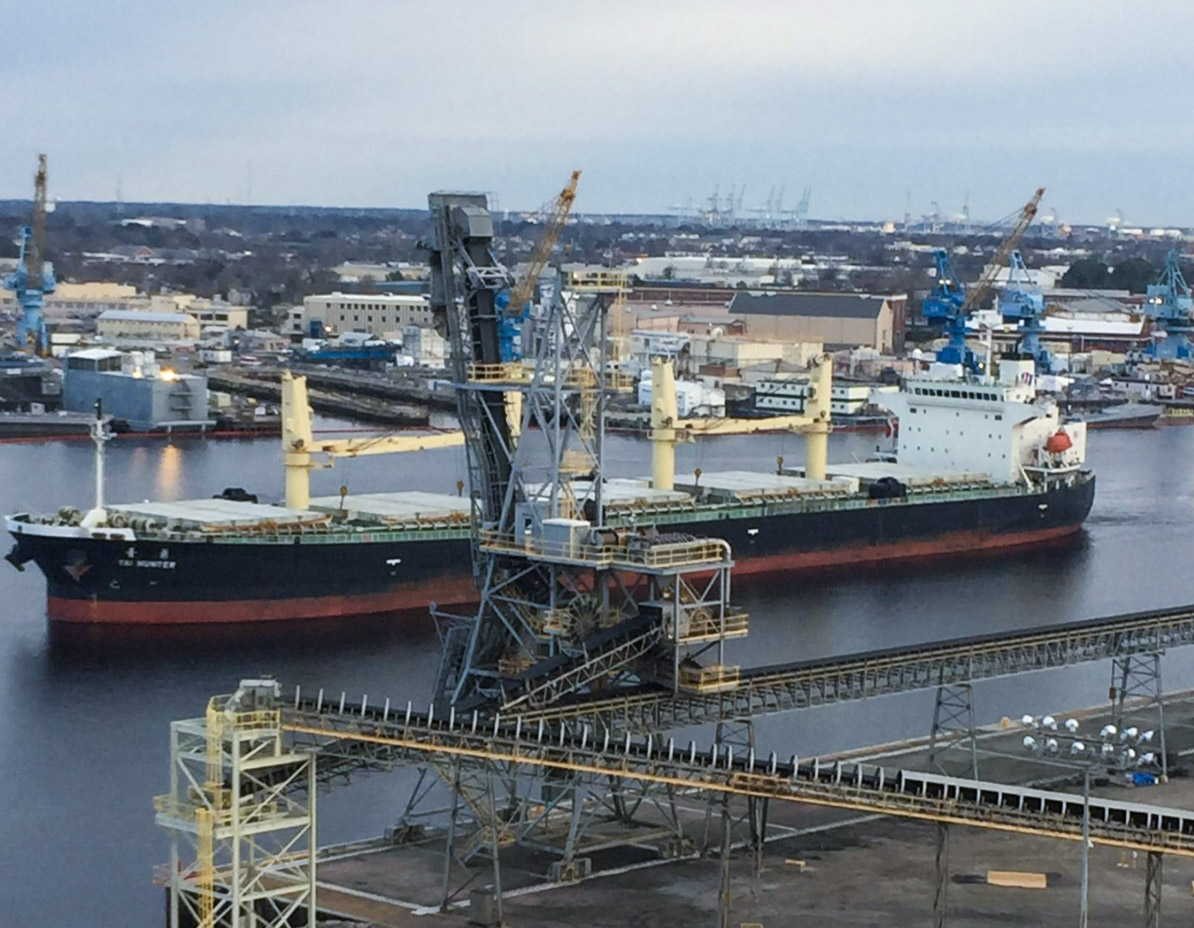
Virginia, USA: Expanding our offering of lower carbon cement and cementitious products
We are upgrading our import capacity in the US with a $37 million investment in our Norfolk import terminal in Virginia, while also expanding our offering of lower carbon cement and cementitious products, contributing to the Group’s net zero goal. The investment is expected to be completed in 2023 and includes a new 70,000-ton dome and multiple truck and rail loadouts on site. Upon completion of the project, the improved terminal will have a total storage capacity of over 100,000 tons and the capability to import, store and distribute different products, as well as raw materials.
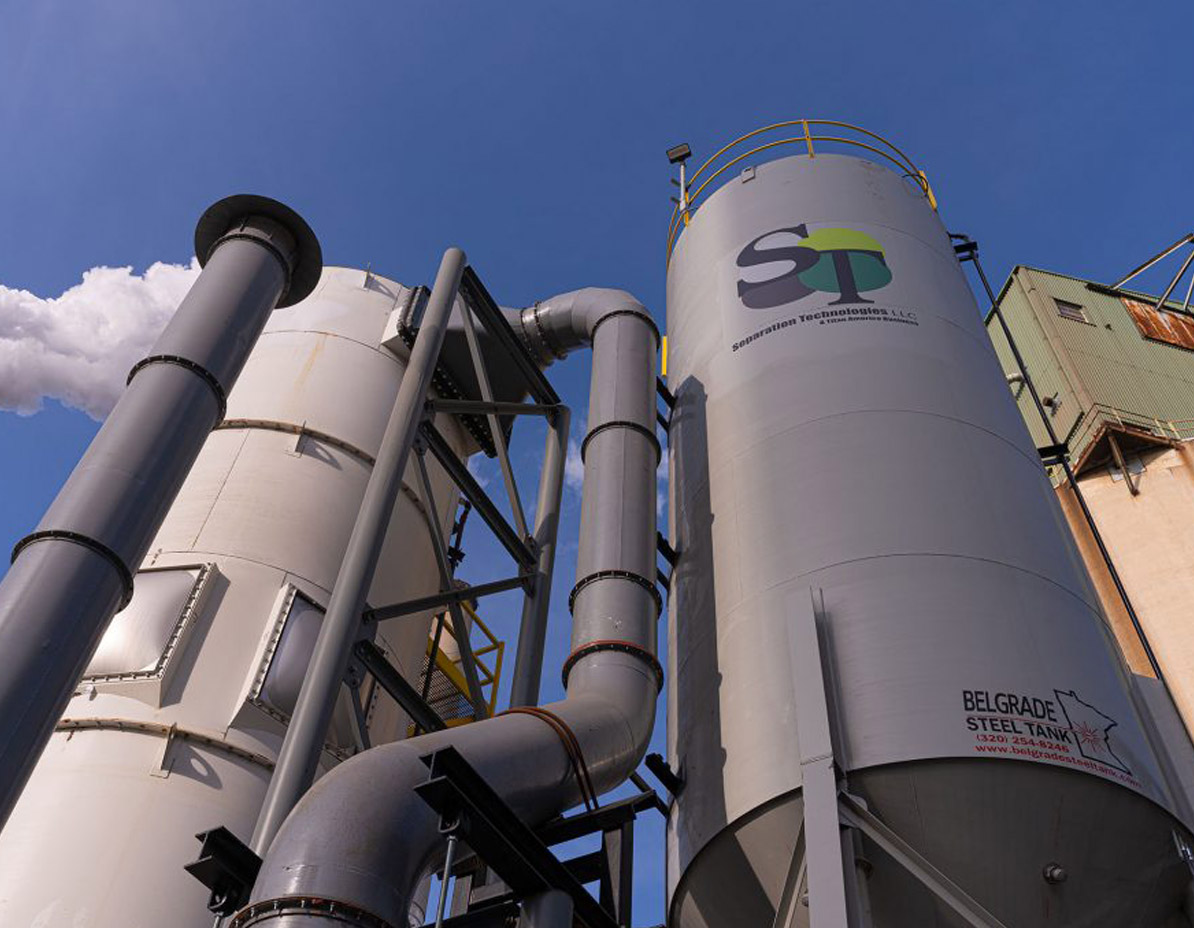
Reducing our cement and concrete carbon footprint through a pioneering new technology that recycles landfilled fly ash
Separation Technologies (ST), a fully-owned TITAN Cement Group US-based subsidiary and a leader in the beneficiation of fly ash, has introduced an innovative process to recycle fly ash from landfills, which is then used to reduce the carbon footprint of cement and concrete products of TITAN and ST’s clients. Through this new technology, fly ash is reclaimed from landfills before being transformed into consistent, high quality, green end-products. These products – launched by TITAN and branded in the US as ProAsh and EcoTherm – can be used as sustainable raw materials in cement, concrete, and power generation. Importantly, TITAN’s exclusive technology can also provide a unique solution for the cleanup and remediation of numerous fly ash landfills and ponds and their surrounding communities worldwide. For the new process, ST has commissioned the world’s first industrial scale reclaimed ash drying and electrostatic separation plant located at Talen Energy’s Brunner Island Steam Electric Station, in the US state of Pennsylvania.

Supporting Rondo Energy to scale up its “heat battery” decarbonization technology
We have joined decarbonization and electrification investment leaders Breakthrough Energy Ventures and Energy Impact Partners in supporting Rondo Energy (“Rondo”) through its recent Series A financing round. The round supports Rondo’s scale-up of its innovative “heat battery” technology, aiming to provide new solutions for decarbonizing power generation and heavy industry, including cement manufacturing. The Rondo Heat Battery uses established industrial technologies to transform renewable electricity into heat at 98% efficiency, exhibiting high scalability potential that is cost competitive to current energy storage methods. In addition to supplying heat at temperatures of up to 1,500°C, the modular battery can store renewable energy generated during off-peak hours, ensuring grid load flexibility and achieving additional greenhouse gas emissions savings. Our Group will work in a technological partnership with Rondo to develop new concepts for decarbonizing industrial production, including cement, combining our significant expertise on sustainable and digital manufacturing with Rondo’s unique innovation in industrial decarbonization. Through this partnership we are looking forward to working together towards carbon neutrality in cement production and to playing a leading role in building the infrastructure of the future.
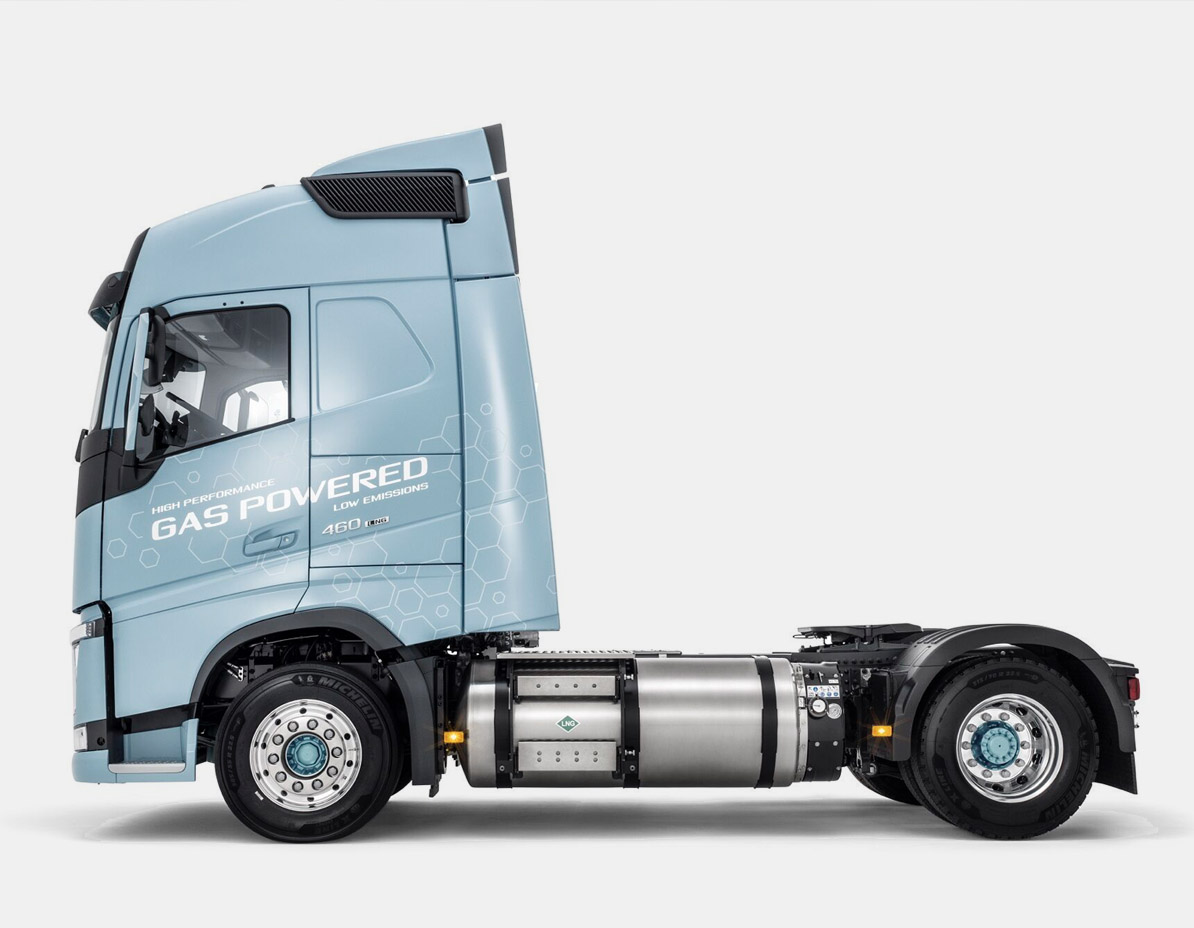
TITAN Greece introduces LNG-powered trucks
As part of our strategy to reduce the carbon footprint of our operations and products, we have acquired the first Liquefied Natural Gas (LNG) powered tractor for the transport of cement within Greece, a pilot action in cooperation with BlueFuel and the Saracakis Group of Companies, with significant benefits for both competitiveness and the environment. In addition to reducing operating and maintenance costs, using LNG for heavy-duty vehicles achieves a reduction of up to 25% in CO2 emissions, complete elimination of SOx (sulphur oxides) and micro-particle emissions, while NOx (nitrogen oxides) emissions are reduced by 80%. Another very important benefit in the urban environment is the 50% reduction in noise.
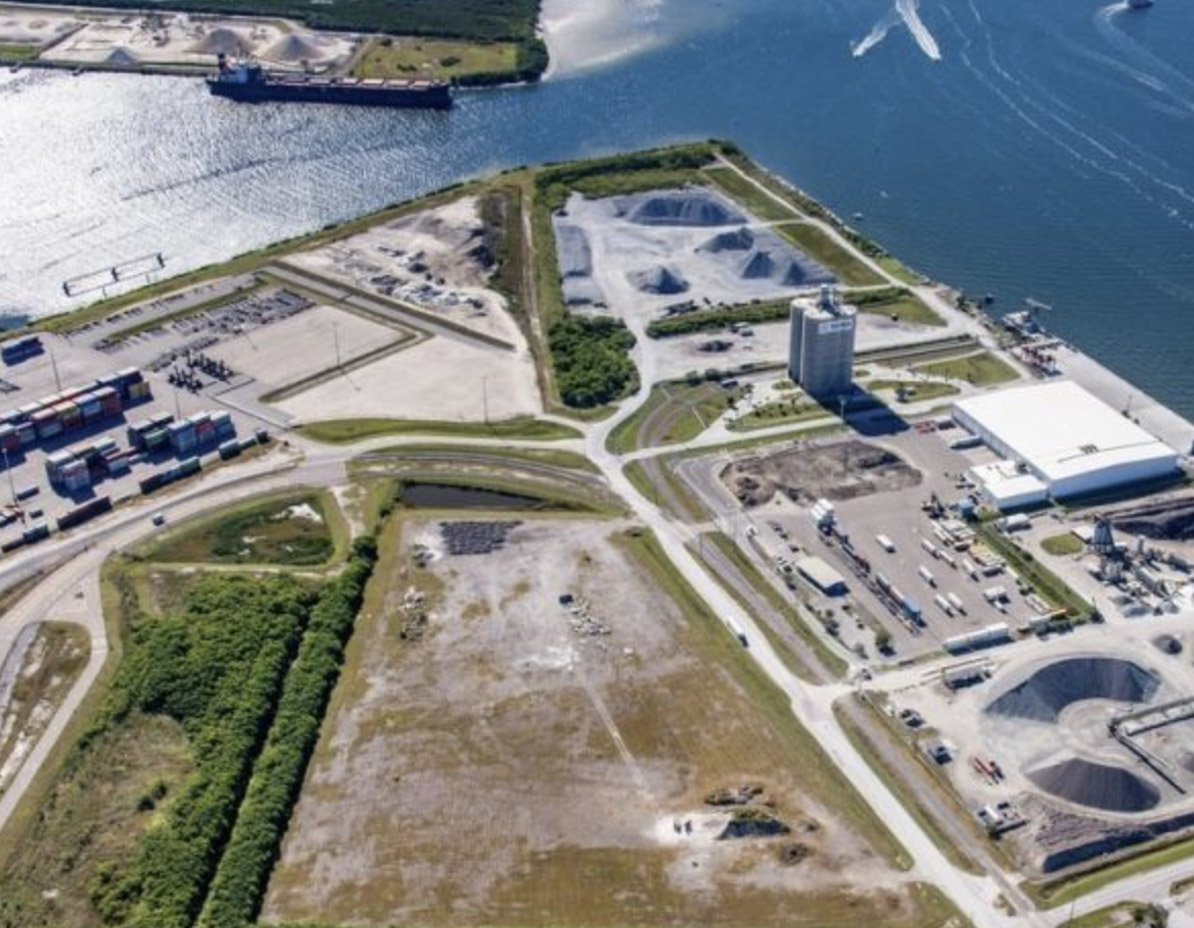
Florida, USA: Accelerating climate mitigation efforts
A $35 million investment for the construction of a 70,000-ton dome at its Port Tampa Bay Terminal, Florida, will increase and upgrade ΤΙΤΑΝ’s import capacity in the US and expand its offering of lower carbon cements and cementitious products. ΤΙΤΑΝ’s investment signifies our commitment to support our US customers in the infrastructure, residential, and commercial sectors with high performance products, while contributing to mitigating climate change and meeting the Group’s decarbonization targets. With an expected completion date of early 2023, the investment in the new dome follows recent investments at ΤΙΤΑΝ’s Pennsuco plant in Medley, Florida, that will enable the conversion of kiln fuel at Pennsuco from coal to lower carbon alternatives, substantially reducing the plant’s environmental footprint as well as eliminating municipal waste from local landfills.
